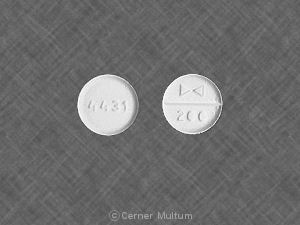What is the most important information I should know about misoprostol?
Misoprostol can cause birth defects, premature birth, uterine rupture, miscarriage, or incomplete miscarriage and dangerous uterine bleeding. Do not use misoprostol if you are pregnant.
If you are able to become pregnant, you will need to have a negative pregnancy test before starting this treatment. You will also need to use effective birth control to prevent pregnancy during treatment.
What is misoprostol?
Misoprostol reduces stomach acid and helps protect the stomach from damage that can be caused by taking a nonsteroidal anti-inflammatory drug (NSAID) such as aspirin, ibuprofen (Advil, Motrin), naproxen (Aleve), celecoxib, diclofenac, indomethacin, meloxicam, and others.
Misoprostol is used to prevent stomach ulcers during treatment with aspirin or an NSAID.
Misoprostol may also be used for purposes not listed in this medication guide.
What should I discuss with my healthcare provider before taking misoprostol?
You should not use this medicine if you are allergic to misoprostol or other prostaglandins, or if you are pregnant.
To make sure misoprostol is safe for you, tell your doctor if you have:
- inflammatory bowel disease (IBD), irritable bowel syndrome (IBS), or other intestinal problems;
- heart disease; or
- if you are dehydrated.
FDA pregnancy category X. Misoprostol can cause birth defects, premature birth, uterine rupture, miscarriage, or incomplete miscarriage and dangerous uterine bleeding. Do not use misoprostol if you are pregnant. Use effective birth control to prevent pregnancy while you are using this medicine, and for at least 1 month after your treatment ends.
If you are able to become pregnant, you will need to have a negative pregnancy test before you start taking misoprostol. Treatment with this medicine should begin on the second or third day of your menstrual period.
Stop taking this medicine and tell your doctor right away if you become pregnant during treatment.
It is not known whether misoprostol passes into breast milk or if it could harm a nursing baby. Tell your doctor if you are breast-feeding a baby.
How should I take misoprostol?
Follow all directions on your prescription label. Do not take this medicine in larger or smaller amounts or for longer than recommended.
Do not share this medicine with another person.
Misoprostol is usually taken with meals and at bedtime. Follow your doctor's instructions.
You may have nausea, stomach cramps, or diarrhea while taking this medicine, especially during the first few weeks after you start taking misoprostol. These symptoms usually last for about a week.
Call your doctor if you have severe nausea, stomach pain, or diarrhea lasting longer than 8 days.
Read all medication guides or patient instructions provided with this medicine each time your receive a new supply.
Store at room temperature away from moisture and heat.
What happens if I miss a dose?
Take the missed dose as soon as you remember. However, if it is almost time for the next dose, skip the missed dose and take only the next regularly scheduled dose. Do not take a double dose of this medication.
What happens if I overdose?
Seek emergency medical attention or call the Poison Help line at 1-800-222-1222.
What should I avoid while taking misoprostol?
Ask your doctor before using an antacid, and use only the type your doctor recommends. Some antacids can increase your risk of diarrhea while you are taking misoprostol.
What are the possible side effects of misoprostol?
Get emergency medical help if you have any of these signs of an allergic reaction: hives; difficult breathing; swelling of your face, lips, tongue, or throat.
Call your doctor at once if you have:
- severe ongoing stomach discomfort or diarrhea; or
-
dehydration symptoms --feeling very thirsty or hot, being unable to urinate, heavy sweating, or hot and dry skin.
Common side effects may include:
- diarrhea;
- stomach pain, nausea, upset stomach, gas;
- vaginal bleeding or spotting, heavy menstrual flow; or
- menstrual cramps.
This is not a complete list of side effects and others may occur. Call your doctor for medical advice about side effects. You may report side effects to FDA at 1-800-FDA-1088.
What other drugs will affect misoprostol?
Other drugs may interact with misoprostol, including prescription and over-the-counter medicines, vitamins, and herbal products. Tell each of your health care providers about all medicines you use now and any medicine you start or stop using.
Where can I get more information?
Your pharmacist can provide more information about misoprostol.
Remember, keep this and all other medicines out of the reach of children, never share your medicines with others, and use this medication only for the indication prescribed.
Every effort has been made to ensure that the information provided by Cerner Multum, Inc. ('Multum') is accurate, up-to-date, and complete, but no guarantee is made to that effect. Drug information contained herein may be time sensitive. Multum information has been compiled for use by healthcare practitioners and consumers in the United States and therefore Multum does not warrant that uses outside of the United States are appropriate, unless specifically indicated otherwise. Multum's drug information does not endorse drugs, diagnose patients or recommend therapy. Multum's drug information is an informational resource designed to assist licensed healthcare practitioners in caring for their patients and/or to serve consumers viewing this service as a supplement to, and not a substitute for, the expertise, skill, knowledge and judgment of healthcare practitioners. The absence of a warning for a given drug or drug combination in no way should be construed to indicate that the drug or drug combination is safe, effective or appropriate for any given patient. Multum does not assume any responsibility for any aspect of healthcare administered with the aid of information Multum provides. The information contained herein is not intended to cover all possible uses, directions, precautions, warnings, drug interactions, allergic reactions, or adverse effects. If you have questions about the drugs you are taking, check with your doctor, nurse or pharmacist.
Copyright 1996-2018 Cerner Multum, Inc. Version: 8.01. Revision date: 7/10/2014.





